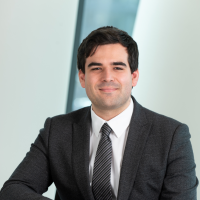Introduction
In Northumbria Healthcare NHS Foundation Trust v HMRC 2025 UKSC 37 ("Northumbria"), the Supreme Court addressed a crucial question for public bodies: when do they make supplies as public authorities (enabling them to recover but not charge VAT)?
The case has significant financial implications. The Court estimated there are up to 70 other appeals by NHS bodies, with potentially £100 million at stake. Further, this case has potential implications for paid-for car parks at courts, schools or local councils and could also affect other services offered by public bodies, such as leisure centres and libraries.
Background and issues
Northumbria Healthcare NHS Foundation Trust (the "Trust”) provides car parking at 14 hospitals and several health centres, serving a largely rural population.
The Trust argued that HMRC should reimburse the VAT it had paid to HMRC on car parking fees. Although the First Tier and Upper Tribunal found against the Trust, the Court of Appeal overturned these decisions.
HMRC appealed to the Supreme Court. For the Trust to succeed in its VAT reimbursement claim (while also not being required to have charged VAT to the users of its car park), the Trust needed to show that:
- it was acting under a special legal regime ("SLR") when providing car parking services; and
- failing to charge VAT on its car parking fees would not lead to a significant distortion of competition.
The Trust failed to succeed with the Supreme Court on either point.
Is the body acting under an SLR?
The Supreme Court rejected the Court of Appeal's assertion that an SLR arose from government guidance underpinning hospital car parking, combined with the Trust's general public law duty to adhere to such guidance. Instead it asserted that an SLR must be interpreted strictly.
Where a public body acts under legal conditions applicable to private traders, there is no SLR. If the body is using a specific public power to carry out the activity, or if national law requires the body to carry out an activity in a manner inapplicable to private traders, it will be acting under an SLR.
The Supreme Court determined that the provision of car parking was entirely separate from the Trust's provision of healthcare. The legal conditions for car parking services were substantially the same as those of private traders and hence there was no SLR.
Significant distortions of competition
Since the Supreme Court found there was no SLR, the question of the distortions of competition was moot. The court examined it nonetheless, both to set out the law definitively and to articulate its disagreement with the Court of Appeal's formulation.
If establishing an SLR was difficult, finding "significant distortions of competition" was much simpler.
The Supreme Court's judgment nominally placed the burden of proof on the party asserting distortions of competition – i.e. HMRC. That said, the Court in essence reversed the burden of proof when there were similar supplies saying that similar supplies "give rise, as a general rule, to a distortion of competition."
The Supreme Court further determined that issues of the distortion of competition were to be assessed by reference to the relevant national, not local, market and that "significant" distortion only meant "more than negligible". The Supreme Court found that treating the Trust's car parking services as "non-business" would lead to a significant distortion of competition.
Implications
It is less the decision of the Supreme Court in Northumbria and more the manner of its decision that has the greatest potential implications for public bodies. The Court was stringent in narrowing the circumstances in which a public body might successfully claim it was acting under an SLR, and broad in setting out circumstances when significant distortions of competition might be found. Public authorities may find it harder to make the argument that otherwise VATable supplies made by them are "non-business" for VAT purposes, allowing them to recover VAT incurred without charging it.
Among other disagreements with the Court of Appeal, the Supreme Court also rejected outright its suggestion that there might be a "public interest" basis for a public body being non-taxable. VAT treatment cannot be determined by a public interest argument that it allows the body to use more of the revenue generated for public purposes.
Local Authorities, NHS Trusts and academies will wish to review their VAT strategy and take advice to be sure to take account of this decision.
DWF has a leading team of tax experts who can advise public bodies on the implications of this judgment. We welcome any contact to discuss its implications on your projects and services.














